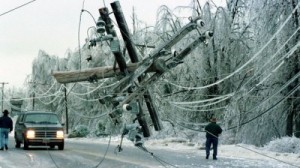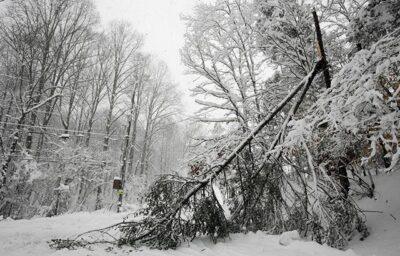 Winter seems to have arrived early in most of the United States this year, with the sudden freezing temperatures, icy roads and snow catching many by surprise. Winter storms can be outright dangerous if you aren’t prepared.
Winter seems to have arrived early in most of the United States this year, with the sudden freezing temperatures, icy roads and snow catching many by surprise. Winter storms can be outright dangerous if you aren’t prepared.
Consider the following preparation tips to help you get through the upcoming winter storms:
1. Stock Up on Alternative Light Sources
Americans are so used to having light that being without it can be very scary the first time. Day-to-day life revolves around light, especially in winter when there isn’t much daylight to begin with. Have a nice supply of candles, preferably emergency candles with a long burn life. Invest in oil lamps. They supply much more light and are easier to deal with than candles generally. Get a generator and consider a solar one, which would work even without gasoline when the grid is down. Lastly, invest in some battery-poweredlanterns, especially those with LED lights that tend to last longer and provide brighter light. Have plenty of flashlights on hand in easy-to-find places around your home.
Harness The Power Of The Sun When The Electricity Goes Out…
2. Prepare for Backup Heat
If you have a fireplace or a wood-burning stove, you’re set. But if not, consider an alternative source. Look into buying a used wood-burning stove as a backup. They can be installed in your home on a temporary basis by installing a “chimney” through a window, if you know what you’re doing. Learn how to do that here.
3. Check Your Home’s Insulation
A poorly insulated house in a cold climate makes it extremely difficult to effectively stay warm and heat your home. Without it, your electrical bill will be through the roof. Secondly, in the event the power goes out, you are going to lose that heat much more quickly. Aside from completely redoing the insulation in your house (a big job) there are other little things you can do.
First off, you can use a foam spray to fill in any cracks or areas in your home where the cold might be leaking in. Make or buy thick curtains for your windows and use window cling-film kits for an extra insulating boost. Drafts from under doors can let in a surprising amount of cold which can often be fixed by using a long draft stopper that runs along the bottom of the door.
4. Learn How to Cook Food In Your Home
If you have a woodstove or fireplace you can cook with, you are going to be fine. If not, you will need to search for a different method. If you have a generator, you can use a hot plate or electric griddle. You can even use propane gas cook stoves that are popular for camping.
5. Stock Up On Water for Drinking, Cooking and Sanitation Purposes
Americans use a surprising amount of water in their daily lives. Not just drinking water but water to wash our bodies and to flush our toilets. It is recommended that in the event of a severe winter storm in which you lose power, you fill up a bathtub with water. This water will be used for sanitary purposes only. You should also keep clean drinking water on hand.
World’s Smallest Solar Generator … Priced So Low Anyone Can Afford It!
6. Prevent Frozen Water Lines
Whether you have a well water system or not, frozen pipes can be a serious problem in a storm. Not only can pipes freeze, but they also can burst under pressure, completely destroying your ability to get water to your house – and causing a wet and soon to be frozen mess under your house. One tip for preventing frozen pipes is to leave your sink faucets and bathtubs on a very slow drip. You should also insulate the pipes as best as you can. If you don’t have access to actual pipe insulation, you can use old blankets or even newspaper. Don’t forget to shut off water lines to the parts of your property that don’t need water access during winter.
7. Get Plenty of Clothes and Blankets
Power outages aren’t fun, especially in winter when you really can’t leave the house. Don’t forget to prepare yourself and your family once the house is taken care of. Ensure you have plenty of blankets on hand and each person in your family has lots of warm clothing. Don’t forget warm mittens and hats. If you have pets or livestock, make sure they are kept warm and have access to water. Conserve your energy as much as possible and stay indoors.
Source:Offthegridnews.com

Leave a Reply